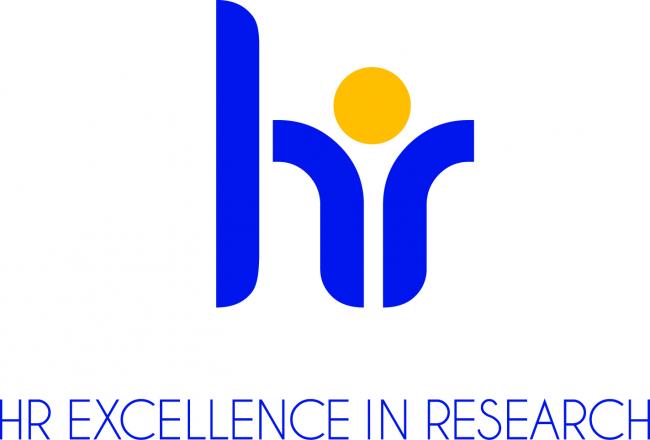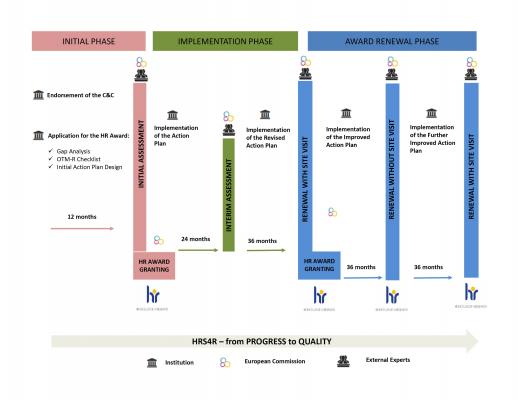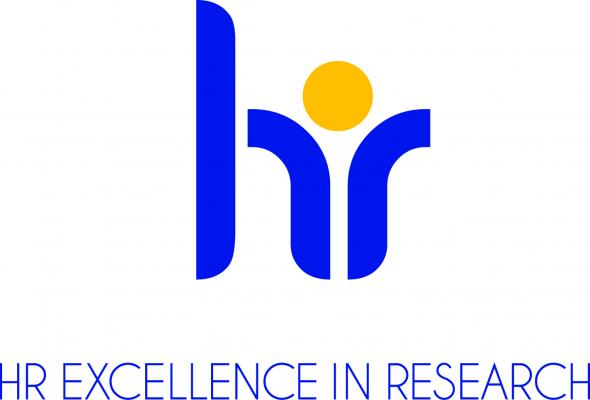HR EXCELLENCE IN RESEARCH
At Karlstad University, we work actively towards creating a stimulating work environment and good conditions for our researchers. We strive towards fair and transparent recruitment as well as favourable professional development for researchers. The further development of favourable conditions for researchers is a long-term commitment in line with the University's goal of increased internationalisation, as well as of being an attractive employer.

Our work are based on researchers, management and administrative staff identifying areas in need of development. These identified needs result in development activities, which then become practise within our organisation. The work is assisted by the tool HR Exellence in Research process, which contains templates and mandatory procedures. Karlstad University has received the HR Excellence in Research Award by the European Commission. We received this award because of our ongoing systematic work of improving the conditions for researchers.
In 2022, the latest version of the action plan was developed in collaboration with researchers at all levels, university management and support functions. It includes the following and can be read in full in the right-hand column:
- Examining career support at the University, where we are today, how we compare internationally and where we want to be
- Implementing activities from the co-authorship report
- Investigate and develop the conditions for collaboration with the wider community
- Develop digital recruitment course available to all those working in recruitment
- Implement the EU Open Science Policy
Examples of areas that have undergone development in recent years include:
- Peer supervision
- Continuing professional development of doctoral supervisors
- Career guidance during staff appraisals
- Information programmes regarding career opportunities outside of academia
- Rules concerning co-authorship
- Policy documents concerning the work performed by doctoral students
We are implementing the European Charter for Researchers and the Code of Conduct for the Recruitment of Researchers, also called the Charter and Code. These are issued by the European Commission and contains recommendations and guidelines for good practise in the recruitment and employment of all researchers, regardless of career level.
In 2025, work is underway to submit an application for the renewal of the award. In the context of the application and audit, the European Commission will carry out a site visit.
WORKING GROUP
A working group that coordinates the implementation of the Charter & Code has been appointed:
- Helena Strandberg, Project Leader and HR Strategist, HR Office
- Eamonn McCallion, Research Advisor, Grants and Innovation Office
- Magnus Lestelius, Professor, Department of Engineering and Chemical Sciences
- Christina Olin-Scheller, Professor of Educational Work, Head of Subject and Acting Professor of Comparative Literature, Department of Educational Studies
- Phil Aupke, PhD candidate in Computer Science, Department of Mathematics and Computer Science
- Leonardo Horn Iwaya, Associate Senior lecturer, Department of Mathematics and Computer Science
BACKGROUND
The aim of The Charter and Code is to create the world’s most competitive knowledge-based economy, with the help of European research activities.
By improving the conditions for free research, promoting an open labour market for researchers and enabling recruitment and retainment of outstanding researchers, a strong European research area can be established. Through this, an attractive and sustainable labour market for researchers can be achieved. The aim of the Charter and Code is also to ensure that the relationship between researchers and employer contribute to successful research, as well as access to and exchange of knowledge, technological advancements and career development.
RELATED DOCUMENTS
In order to ensure an open, transparent and merit-based culture in all our activities at Karlstad University, we have a number of policy documents listed in the right column.
CONTENTS OF THE CHARTER AND CODE
The Charter and Code comprises general principles and requirements that determine roles, responsibilities and rights for researchers and employers. These principles serves as a framework, guiding the work performed by researchers and employers.
Consequently, employers who adopt and implement the Charter and Code demonstrate their commitment to act responsibly and professionally towards their employees. Employers commit to promoting equal treatment and transparent recruitment, as well as offering fair conditions for researchers and contributing to the development of the European research area. The aim is to become an attractive work place for researchers seeking employment or a host for their research projects.
THE HR EXCELLENCE IN RESEARCH PROCESS AT KARLSTAD UNIVERSITY
The work was initiated in 2017, when the vice-chancellor assigned a steering group to monitor the process, as well as a working group to implement the practical steps of the process. The steering group was later replaced by the management council at Karlstad University.
All employees at Karlstad University were invited to participate in workshops or to contribute with their thoughts in other ways.
A GAP analysis and an action plan with scheduled activities were developed based on workshops with researchers representing all levels and faculties, as well as university management.
The Charter and Code comprises 40 principles, divided up into four areas:
- Ethical and Professional aspects
- Recruitment and Selection
- Working conditions
- Training and professional development
These principles are used as policy document at Karlstad University, so policies, procedures and regulations have been updated to correspond to the principles.
In February 2018, the University adopted the principles of the Charter and Code and informed the European Commission that Karlstad University intended to start the application procedure.
In September 2019, an application was submitted and assessed by external experts.
In March 2020, our application received partial approvement, with a request for supplementary information.
Karlstad University received the HR Excellence in Research Award in September 2020. The implementation of the Charter and Code and the measures and activities detailed in the action plan for Karlstad University, is ongoing. In the autumn of 2022, a new revision of the action plan was made. The European Commission conducted a new assessment to make sure that we fulfilled our commitments. Focus groups, workshops and surveys was conducted during the spring of 2022, where we identified further activities for the revised action plan.
In May 2022, a revised Action Plan was adopted with 8 new activities and revised timetables for some of the activities from the previous Action Plan that had not yet been implemented.
The long-term process is outlined at the bottom of the page.
In August 2022 the revised Action plan together with an self-assessment was submitted to the European Commission for assessment. We got the results back in December 2022, short summary is below.
The European Commission assessed how well we managed to implement our current action plan, how well we have spread the HRS4R and the principles in the organisation and the work with the HRS4R in general, including the work of the implementation group. They were very satisfied with Kau's work and we have received the best possible rating in this first evaluation.
The rating scale from the EU is set at 3 levels in the interim assessment;
-
- HRS4R embedded - Kau received this rating, the highest possible.
- HRS4R embedded, corrective actions needed
- HRS4R embedded, strong corrective actions needed
The Commission encourages us to continue as we have done until the next review and is also satisfied with the actions we have decided for the revised action plan. Furthermore, it calls for increased communication to the organization.
Below are some extracts from the EC Consensus Report - the Commission's report:
Strengths
KAU has undertaken a deep exercise about detecting strong and weak points for analysis. HR issues have been worked in a very professional way.
Good practices have been found such as "KAU has established an Open science and data working group" or strong involvement and consultation of researchers and admin. staff, or the great webpage about new staff.
The HR webpage is very complete
Weaknesses
Good actions (i.e. professional development information) seem not to reach all the scientific community. Some communication efforts should be devoted.
Some comments on extended/changed indicators in the action plan, also that a document aimed at managers was not in English, which we will remedy.



